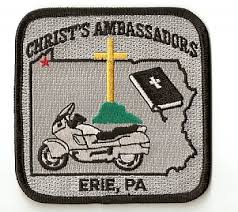Let Jesus inspire you on How to Use Your Burdens!

These days many, if not most, of the Mass readings tell of the post-resurrection experiences the disciples had of Jesus. Mary encounters Him in the garden, near the tomb where His body was interred. He is seen by the disciples in various places — the upper room, the shore of the Sea of Galilee, the road to Emmaus.
In these accounts, He is not recognized at first. He is known through the calling of a name or through the miraculous catch of fish and the breaking of bread.
Jesus takes the initiative and in doing so reveals the transformation of His presence. He is fullness beyond measure. He is known through the sharing of a meal, the intimacy of touch, the deeply personal call of a name, a call that opens the eyes and the heart of one who previously was unable to recognize Him.
We gather in church these post Easter days and listen to these accounts. We are familiar with them, with their theological import as to where and how Jesus is to be known in our own time. Yet we often move blindly through our days, having the Gospel texts as a guide, but having a hard time seeing Jesus as clearly as the texts suggest.
I, at times, wonder if the familiarity with the texts has dulled our ability to really hear them and our drive to ask where we must go to experience Jesus in this life.
The Gospels invite us to take risks in life, to venture beyond our comfortable ways of seeing and hearing, tasting and touching. The texts urge us to believe that what cannot be seen with the eyes is the only truth worth seeing.
They encourage us to satisfy our hunger with the food that is human sharing. The texts offer us the hope that human touching, human naming, are at once coming into intimate contact with God, the God who calls us by name and is known by the name Jesus.
The church is a community of remembering. It is the living and close memory of Jesus. I once read, many years ago, that to remember is to make present again, to make whole again.
In celebrating the Eucharist, we may enter the church with our lives that we know to be broken and in need of healing and mercy. Our memories dim with time. Our bodies age and simply wear out. When we hear the words “do this in memory of me,” the words are the promise of Jesus that when we remember Him in the breaking of bread, He will remember us. He will make us whole, will bring back all that we have lost, all that for which we long.
Not too long ago Father Augustine gave a homily here at the monastery and he touched on a theme that I, for one, need to hear again and again. Augustine spoke about the presence of wounds on the body of Jesus when He appeared to the disciples after the Resurrection. He invited Thomas to touch His wounds, to feel the nail marks on His hands and to put his hand into His lanced side.
The presence of those wounds suggests that Jesus still carried in His very person the wounds of this life. Augustine said that he finds hope in the mystery that Jesus still bears His wounds throughout history, right up to this day and age. Jesus told His disciples — and He tells us — that our wounds are His. He shares in our sufferings, becomes whatever we suffer, and yet we too will rise with Him, for His resurrection is as well a wondrous gift to us all.
Through Jesus, God drew intimately close to all things in this life and He endured them, redeemed them. And in these Easter days, it is good to be reminded that when this world weighs heavy on the shoulders of a friend or neighbor, we can share the pain of that burden by helping him or her carry it. We, too, are then able to touch the wounds of Jesus and lessen the pain.
Written by Father James Stephen (Jeff) Behrens, O.C.S.O., serves at the Monastery of the Holy Spirit, 2625 Ga. Highway 212 S.W., Conyers.













